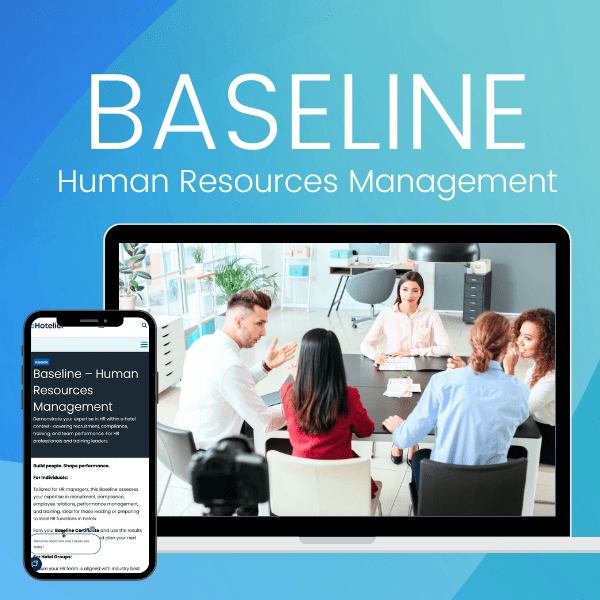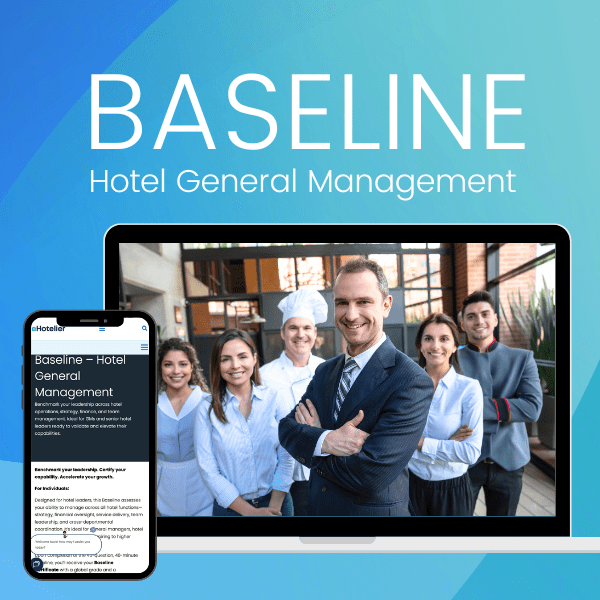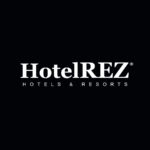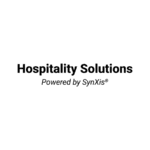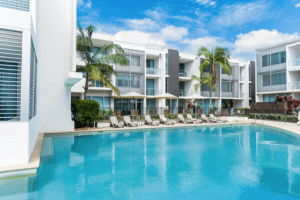 In the hospitality industry, it’s the quality of service which triumphs over everything else. With 61% of consumers switching brands due to poor customer service, it’s time for your hotel to make customer experience an integral part of your strategy.
In the hospitality industry, it’s the quality of service which triumphs over everything else. With 61% of consumers switching brands due to poor customer service, it’s time for your hotel to make customer experience an integral part of your strategy.
Whether guests have booked a room for relaxing or for a business trip, providing high-quality service is what will get customers to return to your hotel again and again. And, you provide excellent service when you successfully manage your hotel or vacation rental.
“Quality is never an accident. It is always the result of an intelligent effort”-John Ruskin.
Here, the trick is to think from your customer’s perspective and understand their journey to manage the hotel efficiently. Whether it’s making the room ready before guest arrival or responding to the customers’ online reviews – managing a hotel is done right when you put yourself in your customer’s shoes.
To further increase the footfalls and customer satisfaction, a hotel should be ready to adapt to new technologies and ensure it maintains a certain level of excellence. For managing a hotel, the finances, planning, services, employees, and everything else should synchronize with each other.
5 ways to manage your hotel’s business
You need to keep the hotel management approach in-line with the trends and strategically appropriate. Here are five ways to manage your hotel business.
 1. Invest in property management software (PMS)
1. Invest in property management software (PMS)
With property management creating rage and likely to reach $23.63 billion by 2026, rising technology penetration is expected to bolster growth. And, it will be your one-stop solution for managing the hotel’s business.
A PMS is a solution for successfully managing the day-to-day activities of your hotel or vacation rental. From reservation, housekeeping, maintenance, analytics to billing and reporting, a PMS reduces labor and time-intensive activities.
Beyond capturing the financials and reservation, a vacation rental property management software works as a centralized hub providing guests’ crucial information, staff productivity, guest engagement, revenue, and reporting.
Imagine the first impression of a guest who walks in the hotel to see the front-desk staff ready for their welcome?
A PMS displays the arrival for the day along with the stay preference. It creates a memorable experience for the customer. Apart from enhancing customer service, property management software works hard to manage the room occupancy, booking, etc. Even when someone cancels the room at the last minute, the software shares the room availability in real-time, allowing you to adjust it.
Benefits of investing in a PMS
- Manages reservations including walk-in bookings and pre-bookings
- Stops double booking
- Creates clear communication between all departments
- Allows billing, invoicing, cashiering functions, and currency exchange
- Provides painless check-in and check-out functionality
- Access to a multitude of reports and analytics
- Lesser time spent on administrative tasks
 2. Foster a culture of effective communication
2. Foster a culture of effective communication
In the hospitality sector, the driving force of success is happy and loyal customers. To drive loyalty, your staff should go above and beyond customer expectations. With the absence of internal communication, providing a seamless customer experience is next to impossible.
For your vacation rental, miscommunication and inadequate communication are two major factors resulting in mistakes. According to a report, the cost of poor communication for a company with 100 employees is $420,000 per year.
With this figure in mind, keeping every member on the same page is the best way to reduce the likelihood of errors and effectively manage your hotel. From providing formal training sessions to boosting staff morale, you need to take an extra step to ensure effective communication to and between the staff members.
With 69% of hotel managers not comfortable communicating with the employees, you need to lead by example to foster a culture of communication in your vacation rental. When you make internal communication a part-and-parcel for your hotel’s strategy, your operations will witness an upward trend. When you communicate with your staff, you trigger a spike in engagement rate resulting in more productive teams. It creates a culture wherein the staff is dedicated to delivering a stellar guest experience.
Methods for improving communication
- Face-to-face interaction for improving employee morale and giving communication a personal touch.
- Hold regular meetings to gain and provide feedback to every staff member.
- Communication workshops to formally train and upskill the hotel staff.
- Internal social media creates an environment where staff members can openly share their views and communicate with each other.
- Use communication apps to keep all the employees on the same page through communication.
 3. Delegate the right task to the right staff
3. Delegate the right task to the right staff
Delegating may sound like a breeze, but passing the baton to others requires a great deal of communication, coordination, and trust. Delegating the right task to the right staff helps empower the team, assist with professional development, and, above all, build trust.
There is no point delegating accounting and billing tasks to someone with a science degree. The job is fit for a person with a finance degree. This makes task delegation an uphill battle for hotel owners or managers.
Of course, delegating work takes the workload off your plate, but it’s much more than that.
For one, your employee who works for you will develop new skills and gain knowledge, thereby preparing them for taking future responsibility.
Remember to award the employees who outperform to instill confidence and increase their motivation level. People work better when they are valued. Therefore, you need to foster a good working relationship with every employee within the team and hotel.
Hotel employees who feel respected and trusted are likely to display a higher level of work commitment.
Steps to delegate the right task to the right staff
- Analyze the skills of the employee
- Set expectations
- Delegate responsibility and not just tasks
- Provide adequate training
- Provide feedback
- Reward the deserving
4. Reduce your labor cost
With labor costs contributing to a whopping 50% of the total hotel’s operating expense, it makes sense to reduce the cost to manage your hotel’s business effectively. But, you cannot achieve it by simply laying off employees or reducing their salaries.
The savvy hotelier is the one who saves money while delighting the customers and without affecting the day-to-day operations.
Ways of reducing labor cost
- Focus on effective scheduling because overstaffing is one of the most significant contributors to your labor cost.
- Train your staff in multiple roles. Cross-trained employees can perform and switch between different jobs.
- Forecast the staffing needs.
- Invest in a labor-management system.
 5. Focus on online reputation management
5. Focus on online reputation management
Did you know that 81% of online customers still read reviews on trusted sites like Google, TripAdvisor, and booking.com before booking a hotel room?
Online hotel reviews are either a source of motivation or worry for hotel owners like you. Word of mouth or online reviews can spread your business to a large extent. But, merely receiving reviews isn’t sufficient. You need to acknowledge and respond to them on time for the reviews to become an indispensable asset.
Your reviews affect your sales volume and, eventually, your revenue. That’s why you need to focus on your online reputation.
When a hotel increases the review score by 1-point on a 5-point scale, they tend to increase the profit by 11.2% and still maintain the same occupancy rate
Online reputation helps you gain a competitive edge, which increases the footfall on your property.
Benefits of managing online reputation
- Enhances hotel bookings
- Helps in understanding the guest’s requirement
- Assists in managing the hotel
- Improves OTA
- Increase guest engagement
- Helps you learn about the competitors
Conclusion
Hotel owners like you have the opportunity to capitalize on the guest’s appetite for a unique and memorable experience. So, start by efficiently managing your hotel.
Hotel management, in many ways, is an art form; it requires the right mix and balance of technology and industry trends. You cannot randomly pick up a technology and pray with closed eyes for it to work. Managing a hotel requires meticulously planning and investment in breakthrough technologies to deliver above customers’ expectations.
It’s also essential to understand the team’s culture, accept individualities, differences, and know what motivates the team to create a working environment wherein every staff member strives to deliver exemplary customer service.
Apart from employees, internal communication and delegation of work are vital ingredients for hotel operation. A wrong decision in either will play a spoilsport and ruin your efforts.
Remember that managing your hotel’s day-to-day activities plays a vital role in building a rock-solid reputation. Use these management tips to ensure your hotel runs like a well-oiled machine!


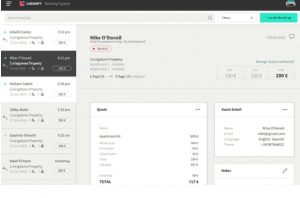 1. Invest in property management software (PMS)
1. Invest in property management software (PMS) 2. Foster a culture of effective communication
2. Foster a culture of effective communication 3. Delegate the right task to the right staff
3. Delegate the right task to the right staff 5. Focus on online reputation management
5. Focus on online reputation management

